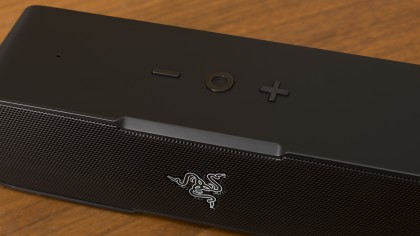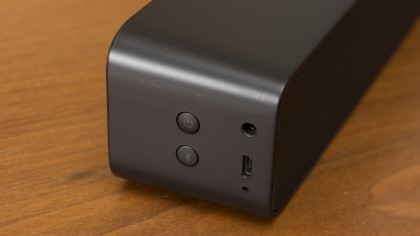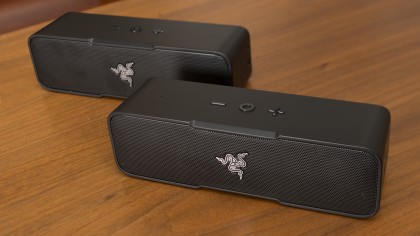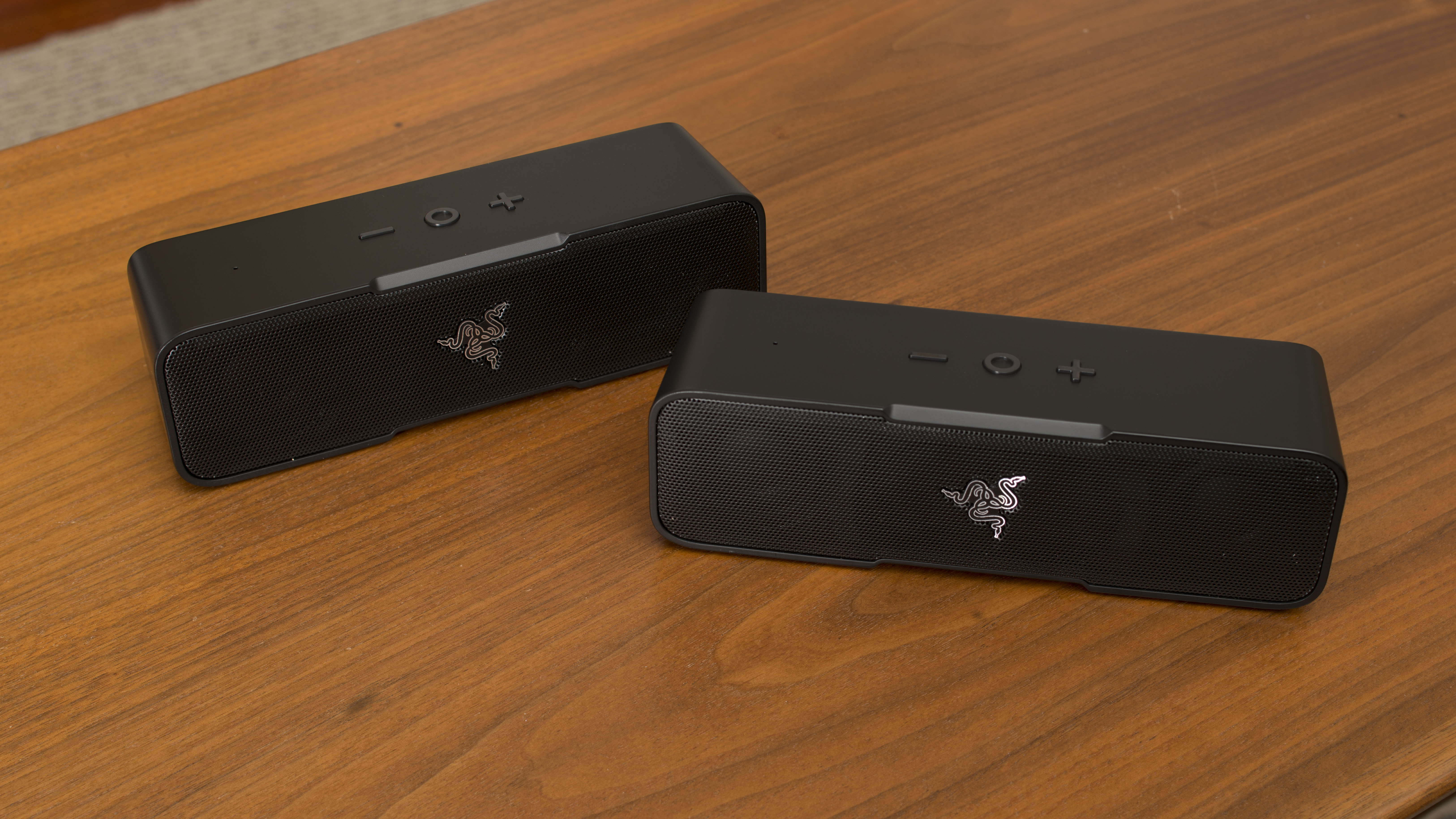TechRadar Verdict
The Razer Leviathan Mini is a lightweight portable Bluetooth speaker that does a lot right in the company's first attempt at sound in a small package. It's a little costly for what it offers, though, but ultimately sounds as good or better than the competition.
Pros
- +
Ultra-portable
- +
Pairs with second unit
- +
Robust, well-rounded sound
Cons
- -
Pairing two speakers can be problematic
Why you can trust TechRadar
Update: The Razer Leviathan Mini review has been revised as of February 10, 2016. We believe one of the original, pre-production units might have been faulty and have extended the opportunity to Razer for a re-review. Much of the review has maintained its original tone, however the sound quality and Bluetooth connectivity sections have been updated to reflect this change. The score has also been changed to match the updated text.
The Razer Leviathan was one of the most innovative products Razer has put out in the past five years, only falling behind the Nabu Smartband and Razer Blade laptop in terms of significance to the company's future.
The full-size, four-driver soundbar not only offered a complete range of sound, from a meaty bass to clear mids and highs, but it also did so for half the cost of the competition. Perhaps more importantly, though, it offered Razer an opening into the living room space that the company quickly followed up on, with products like the Forge TV, an Android TV micro-console, and accessories like the Razer Wild Cat Xbox One Controller.
In more ways than one, fortunately, the $179 (£149/AU$269) Razer Leviathan Mini, a portable Bluetooth speaker version of the TV-tethered soundbar, follows in its progenitor's footsteps.

Design
While some products tack on the word "mini" simply to emphasize the fact that it's a smaller, portable version of an existing product, Razer takes the definition quite literally.
The Leviathan Mini is, as far as design is concerned, the same shape and uses the same sleek carbon fiber shell as the Leviathan, but is roughly an eighth of the size. The measurements, in case you need them for planning/visualization purposes, are 2.12 x 3.34 x 2.16 inches, or 54 x 185 x 55mm (L x W x H).
Weight-wise, the speaker is an equally slim 1.18 pounds (538g). This miniature monster fits easily into most bags including, of course, the satin bag that Razer ships with every unit.
Sign up for breaking news, reviews, opinion, top tech deals, and more.
Instead of four speakers, like the Leviathan soundbar, the Leviathan Mini rocks two front-firing, 45mm drivers and one passive radiator on the back side.
Guarding those speakers is a simple black grille that covers the front face and back side. On top of the speaker, you'll find a reduced set of controls: volume up, volume down and a sync button, the latter of which can be used to pair a second Leviathan Mini for two-channel, stereo listening.
Spin the jet-black box around to the side, and you'll find the standard set of power and Bluetooth buttons, as well as a standard 3.5mm auxiliary jack and micro USB port that you'll use to charge the unit when it's running low on juice.

Finally, on the bottom of the unit is a rectangular rubber base that props the unit up, and provides a small barrier between it and any surface underneath it.
Performance
In terms of performance, expect a boisterous sound that excels in the mids and lows. I don't find absolute clarity to be one of the Leviathan Mini's strong suits, but it's more than sufficient to stream 160kbps files from Pandora or get clear audio from YouTube videos.
I would've liked a bit more clarity in the high-end of the spectrum, and slightly longer playtime than the 2,600mAH battery can provide. As it stands, you can expect the battery to last about 8 to 10 hours while playing music, depending of volume level, and closer to 18-20 hours in standby mode.

Out of the box the speaker will start up in pairing mode, indicated the submarine-esque "ping" noise it emits. Once the first speaker is paired and playing nicely, you can add a second speaker to the configuration by holding the top circle button for three seconds on both units. As long as the two speakers are reasonably close together (think from one end of the table to the other), the two should find one another and sync up. From there you can separate the mix into two distinct channels by holding down both the volume up and volume down buttons simultaneously.
While a second speaker adds an additional variable into the mix - and can lead to some complications if you try to pair both speakers to your phone while they're in stereo mode - I actually quite enjoy having a wireless left and right channel speaker system that requires zero wiring.
Final verdict
From a design perspective, there's a lot right with the Leviathan Mini. It's sleek-looking and should blend in on most shelves without drawing too much attention. It's similar in shape to its closest competition - the Bose Soundlink Mini and Beats Pill - but has a bit more heft to it.
As far as performance is concerned, it's significantly better than both the Pill and SoundLink. The audio is far more robust-sounding, and I found the Leviathan Mini to actually outperform Dre's dream speaker in every category, bass included.
That said, about $50 less, you can pick up the also-excellent Creative Sound Blaster Roar that will only run you $129/£125 that sounds just as good.
If you're looking to add a portable Bluetooth speaker to your growing arsenal of Razer audio products, the Razer Leviathan Mini is a well-rounded option that might be a bit more than the competition, but delivers in all the right categories.

Nick Pino is Managing Editor, TV and AV for TechRadar's sister site, Tom's Guide. Previously, he was the Senior Editor of Home Entertainment at TechRadar, covering TVs, headphones, speakers, video games, VR and streaming devices. He's also written for GamesRadar+, Official Xbox Magazine, PC Gamer and other outlets over the last decade, and he has a degree in computer science he's not using if anyone wants it.
